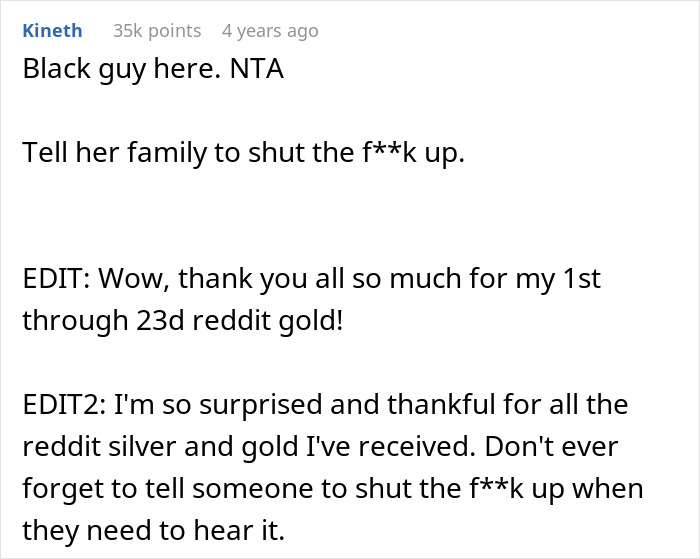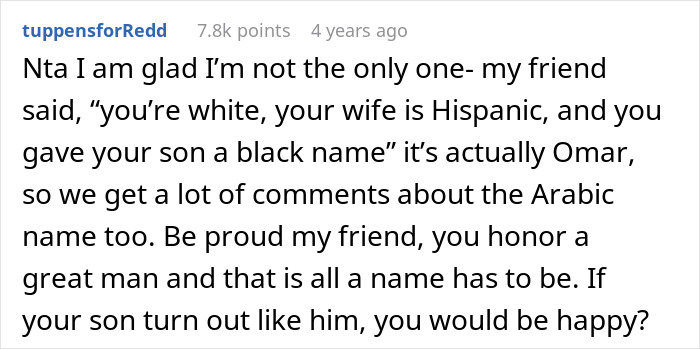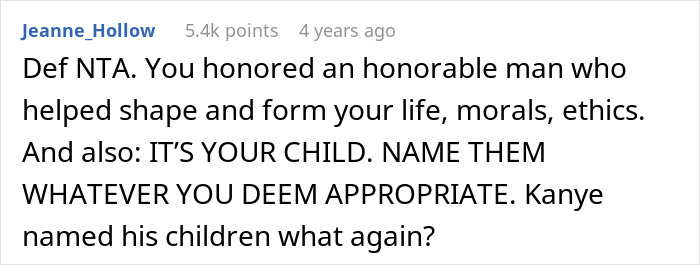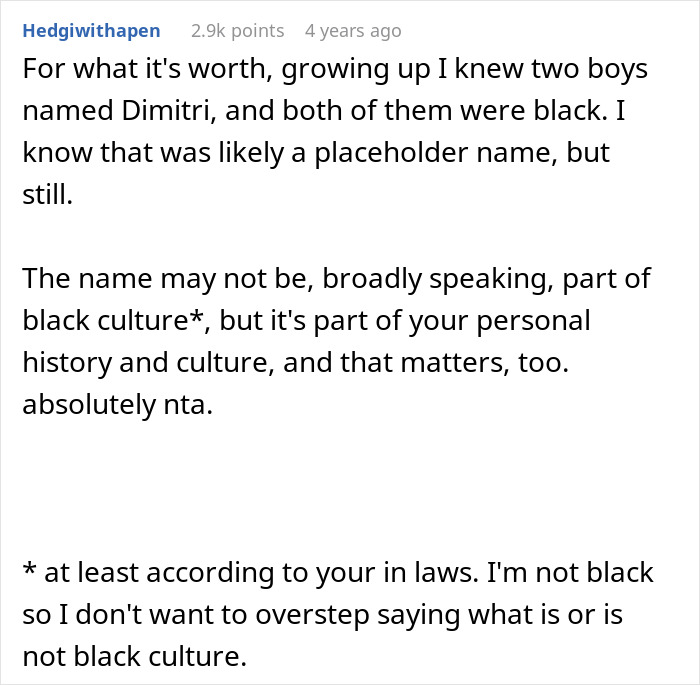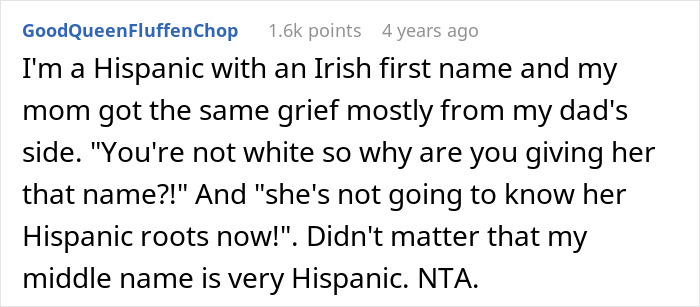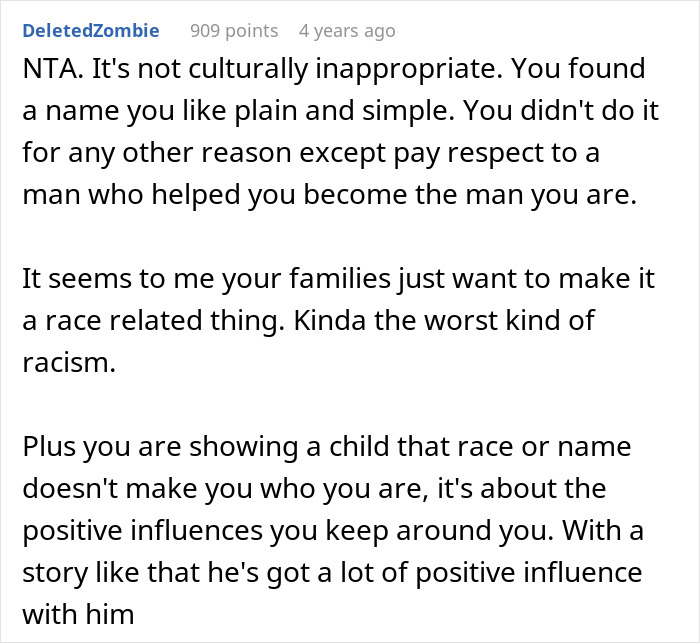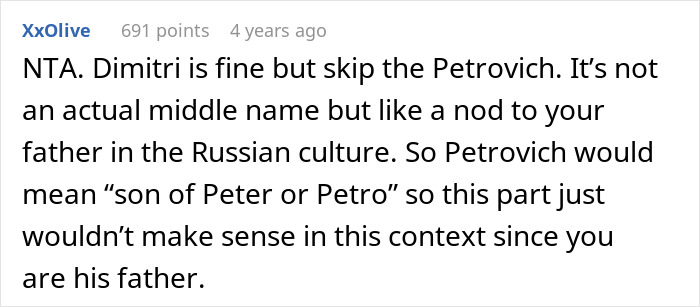Every name carries a story that gives insight into a person’s history and culture. Some people name their children after family members or give them meaningful cultural titles. Other folks might go down another route and choose completely unique monikers.
When people want to use a name to honor someone important in their lives, it’s up to them to decide how they want to go about it. Nobody but the parents can make that decision. When family members try to poke their noses into these matters, things can get problematic.
More info: Reddit
Family look down their nose at newborn’s Russian and white-sounding name, criticize man, and accuse him of not being proud of his black culture

Image credits: nappy (not the actual photo)
The poster is a black man who spent his life in the foster system and was raised by a Russian man named Dimitri Petrovitch, who passed away without having kids of his own
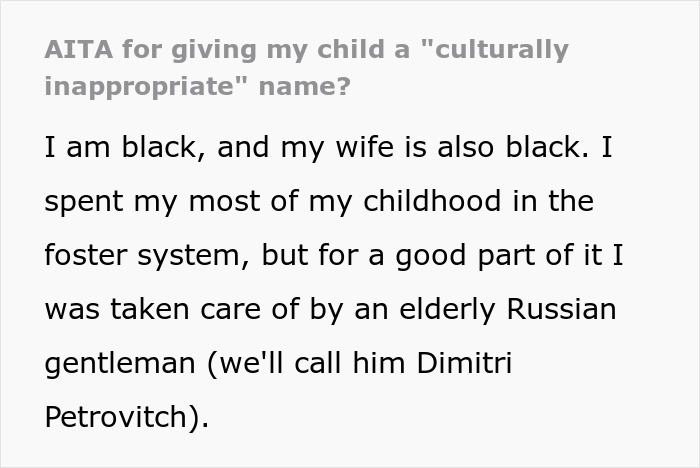


Image credits: RDNE Stock project (not the actual photo)
When the author and his wife had a son, they jointly agreed to name him after the man’s foster parent as a way to honor him

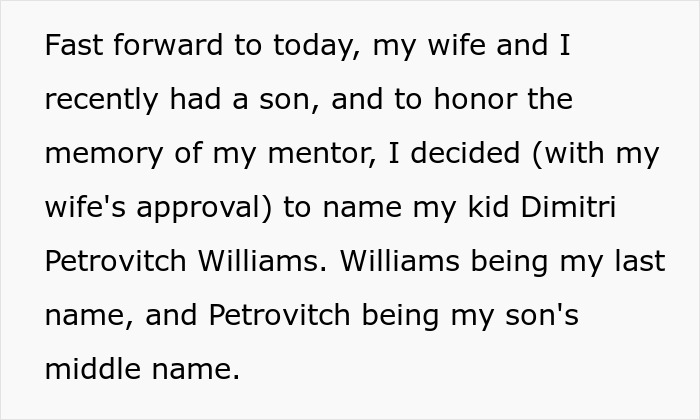
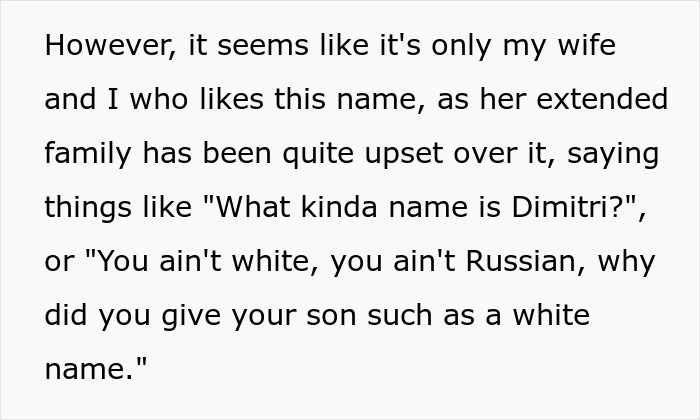

Image credits: RoyalSilverTreasure (not the actual photo)
The guy’s friends and his in-laws did not like the name because it sounded “white,” and they told him his kid would have a hard time at school because of it
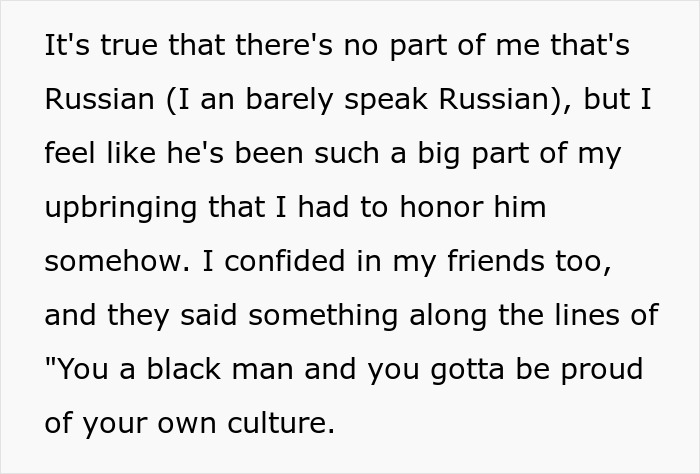

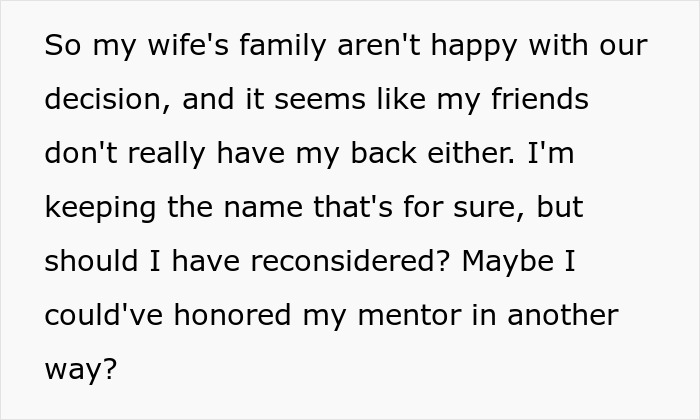
Image credits: CulturalInappropriat
The poster felt deflated by these jabs but still decided to go ahead with the name, he asked netizens if he should have found any other way to honor his mentor
The author provided context to the story, saying that he and his wife are black. He spent his childhood in the foster care system and was looked after by a Russian man. He always felt that the elderly fosterer played a big role in his life and was grateful for his care and love. The Russian man passed away later on without having any children of his own. So, when the poster had his son, he honored his foster parent by giving the newborn his name.
The couple jointly agreed upon the name and decided to call the child Dimitri Petrovitch Williams. The only problem was that his wife’s family did not seem to like the title at all. They kept questioning the couple over their decision to choose a “white” name, saying that they weren’t showcasing their black culture. Some argued that such a moniker would lead to the kid getting bullied at school.
The practice of giving children distinct black names dates back to the 1970s. In the 1960s, the differences between black and white name choices were not as significant, but as time passed and the civil rights movement came into force, there was a profound shift in naming conventions. The divide also became more prominent if people lived in segregated neighborhoods or predominately white areas.
Some iconic historical moments also symbolized the difference between white and black names. One such cultural occurrence in mass media was when an enslaved man refused to accept the name Toby and insisted he be called by his Gambian name, Kunta Kinte. It went on to show that a name holds a lot of power and meaning, which can shape a person’s identity.

Image credits: olia danilevich (not the actual photo)
In this case, the man wanted his son’s name to honor the care and attention given to him by his Russian foster parent. He had a deep connection to the mentor, and clearly, his wife was supportive and willing to name her son after him. However, the guy’s friends and family did not accept the couple’s reasoning and felt that it was like turning one’s back on their cultural roots.
The dad isn’t wrong to want to pass down such a symbolic name to his son. Although he wasn’t looked after by his biological parents, his mentor became his family. In Western culture, it is common for parents to pass down family names to kids. Children might be named after a deceased or living relative to honor them. The in-laws were so hell-bent on getting their way that they didn’t realize what a close connection the man had to his foster parent and what the name meant to him.
Although it might be hard to stand up to one’s family in this situation, the poster stuck to what he believed in. Ultimately, he, his wife, and his son should be okay with the name. Studies show that people who don’t like their name have poor psychological adjustment in later years. So here’s hoping that the boy eventually learns to love his name and doesn’t get influenced by what his extended family says.
Even though the wife’s family wanted to protect their cultural roots, they had no right to express their extreme dissatisfaction to the couple. That’s probably why this viral post received 25k upvotes and over 4.7k comments, with people going off on the entitled in-laws. How important do you think it is for a person to stick to their cultural roots when naming their child? Let us know in the comments.
Netizens were dumbfounded at the statements made by the man’s in-laws, they told him to be proud that he was naming his son after someone so loving and kind
